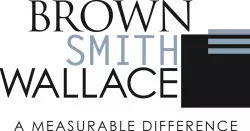Question: We're concerned about our self-insured plan's compliance with the nondiscrimination rules under the Health Insurance Portability and Accountability Act (HIPAA). Would we be in violation if the plan requires employees who use tobacco to pay more for coverage than employees who don't use tobacco?
Answer: No, you wouldn't necessarily be out of compliance — but you must get the details right. As long as the cost difference is structured as part of a wellness program, and the applicable conditions are met, you can charge tobacco users a higher contribution rate to participate in your group health plan without violating HIPAA's nondiscrimination rules.
HIPAA generally prohibits group health plans from discriminating among similarly situated individuals based on health status or health factors. However, the law's nondiscrimination provisions don't prevent a group health plan from reducing participant contributions for participants who qualify under a program of health promotion and disease prevention (in other words, a wellness program). Nor does HIPAA stop a plan from increasing participant contributions for participants who fail to meet the requirements of a wellness program.
Five Mandatory Conditions
Wellness programs that offer a reward only if the employee is able to meet a standard related to a health factor (such as not using tobacco) must satisfy five conditions:
- Size of incentive. Rewards related to tobacco use, when combined with rewards for all other wellness programs under your plan, cannot exceed 50% of the cost of coverage. If your plan includes rewards not related to tobacco use (such as biometric testing), the rewards unrelated to tobacco use cannot exceed 30% of the cost of coverage.
- Health promotion. The program must be reasonably designed to promote good health or prevent disease.
- Annual opportunity. Participants must have a chance to qualify for the reward at least once per year.
- Availability. The program must be available to all similarly situated individuals. This includes a requirement that the program provide a reasonable alternative standard, such as attending smoking-cessation classes, to all participants — regardless of whether they have a medical condition that makes it unreasonably difficult or medically inadvisable to stop tobacco use.
- Disclosure of alternatives. All plan materials describing the wellness program must disclose the availability of characteristics of the reasonable alternative standard. Department of Labor regulations provide sample language for this disclosure.
Alternative standards are subject to additional requirements. For example, if the alternative is completion of an educational program, you must make the program available or help participants find a suitable program. Also, you cannot require participants to pay for the program.
All Applicable Laws
In addition to HIPAA, other laws may further restrict the design of your wellness program. For example, final regulations issued by the Equal Employment Opportunity Commission under the Americans with Disabilities Act (ADA) state that HIPAA's increased incentive limit for programs related to tobacco use cannot be used if your program uses a medical test to detect participants' use of tobacco. In this situation, the maximum allowable incentive under the ADA may be calculated differently from the HIPAA limit, depending on the terms of your plan.
The Affordable Care Act includes incentives for employers to create wellness programs. However, when designing or administering one, it's important to coordinate the requirements of all applicable laws and not focus exclusively on HIPAA.
If you have questions about wellness programs, please contact Ron Present, Partner and Health Care Industry Group Leader, at rpresent@bswllc.com or 314.983.1358.
The content of this article is intended to provide a general guide to the subject matter. Specialist advice should be sought about your specific circumstances.


